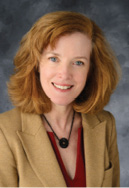Walking the Talk

"As part of its institutional strategic planning process in 2009, the University of Iowa appointed a university-wide task force to explore strategies to foster greater public outreach and civic engagement. The task force's review of the outreach and engagement landscape quickly revealed Michigan State University as a national leader in both the theory and practice of engaged scholarship. At the task force's recommendation, Hiram Fitzgerald was invited to campus in 2010 to convene a conversation about the scholarship of engagement. Fitzgerald emphasized the importance of building an infrastructure for engagement, maintaining rigorous academic standards for engaged scholarship, and weaving engagement into the fabric of the University's teaching, research and service missions. The conversation Fitzgerald ignited on campus continues today and the catalyzing effects of his visit are visible. In 2013 the University established an Office of Outreach and Engagement and appointed a new associate provost to direct it, and earlier this year Iowa received the Carnegie Community Engagement Classification for the first time."
Ann Ricketts
Assistant Vice President for Research
University of Iowa (Consultation Client)
In a journal article published in 2012 1, MSU Associate Provost for University Outreach and Engagement Hiram E. Fitzgerald and colleagues stated unequivocally (p. 7), "The centrality of engagement is critical to the success of higher education in the future... Undergirding today's approach to community engagement is the understanding that not all knowledge and expertise resides in the academy, and that both expertise and great learning opportunities in teaching and scholarship also reside in non-academic settings."
The authors explore the tension that arises from the dual pressure on universities (especially public and land-grant universities) to be both research-intensive and committed to the public good. They believe that institutions of higher education can best fulfill both roles by recommitting to their societal contract. Their key point is that engagement serves the academic contract as well as the societal one: It improves research by broadening academic thinking; improves student development as scholars, researchers, leaders, and citizens; and advances opportunities for interdisciplinary research and teaching.
This philosophy is supported at the highest levels of MSU's administration. The University's mission statement names "advancing outreach, engagement, and economic development activities that are innovative, research-driven, and lead to a better quality of life for individuals and communities, at home and around the world" as one of three core ways that MSU fulfills its mission to advance knowledge and transform lives 2
MSU President Lou Anna K. Simon, who has written about engagement herself and has an impressive list of publications on the topic 3, has repeatedly emphasized the point in strategic planning documents, speeches, and publications.
University Outreach and Engagement was charged to create and develop administrative infrastructures to support community-engaged scholarship across all of MSU. NCSUE supports this mandate with studies on things like revising reappointment, promotion and tenure documents to embed faculty reporting of community-based work; developing a typology to discuss such work; and looking at disciplinary variations and publication patterns of faculty involved with it. Learn more about this topic on pp. 16-17 of this issue.
UOE also conducts its own work in accordance with known principles of quality engagement. These principles are loaded with values—scholarly, collaborative, participatory, systemic, capacity-building, sustainable, grounded in context—that are difficult to explain, let alone quantify.
Difficult, but not impossible: By facilitating model partnerships and projects, UOE staff members learn first-hand what works and doesn't work when collaborating with communities. By reflecting on these experiences, they learn why. By sharing these reflections in formats that are useful to their community partners as well as their academic ones, they participate in the greater scholarly and societal conversation and come back to the next project as better partners.
Sources
- Fitzgerald, H. E., Bruns, K., Sonka, S. T., Furco, A., & Swanson, L. (2012). The centrality of engagement in higher education. Journal of Higher Education Outreach and Engagement, 16(3), 7-27.Return to text
- See president.msu.edu/mission/index.htmlReturn to text
- See president.msu.edu/biography/academic-publications.html for a brief list.Return to text
- Written by Linda Chapel Jackson, University Outreach and Engagement
Building Engagement into the Core Academic Mission of the University: The MSU Approach